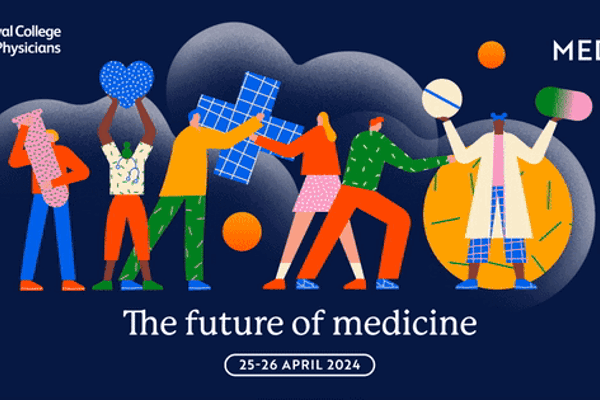Simon Denegri, national director for patients and the public at the National Institute for Health Research (NIHR) and chair for INVOLVE from 2012-2019, has called for all research opportunities to be open and visible within the NHS. Writing in Future Hospital Journal’s special edition on person-centred care, he outlines five simple principles hospitals should be aspiring to fulfil in this arena.
The lengths that patients and their families will go to in order to help researchers understand more about their disease and develop new treatments and therapies never cease to amaze and inspire me.
Since the NIHR was created in 2006, the number of people taking part in clinical research has increased such that last year over 600,000 patients and healthy volunteers were involved. Without their commitment and endurance, a great deal of research simply wouldn’t happen. Furthermore, the NHS would not be able to offer improved care and treatments.
A missed opportunity for research
It is a source of frustration that health research remains one of the best kept secrets in the NHS. The vast majority of patients who pass through the door of their local hospital or GP surgery will be blissfully unaware of the research that happens there or, more importantly, the part they might play in making it happen. It is a missed opportunity for research and for the NHS.
Make research visible
In recent years the NIHR and its NHS partners have collaborated to make research more visible to patients and encourage them to get involved. From national campaigns such as ‘OK to ask’, ‘Research changed my life’ and ‘Join dementia research’ – a national register of people with dementia – carers and healthy volunteers have signalled their willingness to be in research, many of them recruited through memory clinics.
This work – and the evidence that underpins it – has shown that, when told, patients see it as very important that research takes place in the NHS. Moreover, if given the chance, they would jump at the opportunity to take part in research as part of their care.
Without the commitment and endurance of patients and healthy volunteers, a great deal of research simply wouldn’t happen.
A future built from the grassroots
We are some distance from making this a reality for patients. National campaigns and top-down initiatives, as described above, are not enough on their own. Hospitals – working with patients, researchers and clinicians – must embrace a research culture in which information and choice is put in front of patients every day.
In my Future Hospital Journal article I set out five simple principles expressed from a patient perspective that hospitals should be aspiring to fulfil in this arena. These are:
- What my NHS does in research is visible to me.
- I can choose to contribute to research as part of my care.
- My experience is valued as part of the research being done.
- Research is clearly viewed as a mark of quality by those who work in it.
- My contribution is acknowledged and the results of research are made available to me.
Patient research ambassadors
An increasing number of hospitals – from teaching hospitals to district general hospitals – are beginning to tackle this agenda with gusto. Some have bold visions to ensure that every one of their patients is offered the opportunity to take part in a clinical trial. Others such as Salford, Liverpool Heart and Chest, and Maidstone are recruiting patient research ambassadors.
Patients and the public, many of them volunteers, are to be the face of research in their local hospital and to work with their research and development (R&D) offices to help manage study recruitment.
Quality of care: driving improvement
Both the published evidence of improved outcomes for patients cared for in research active organisations, and the patient reports of better care when in a trial, should persuade hospital boards and chief executives of how research can drive improvements in the quality of care and treatment.
Not doing so may well be a strong signal to their community that they are only interested in maintaining the status quo however good or bad that may be.
To find out more about the role of research in the NHS, read Simon's article in June's Future Hospital Journal.




